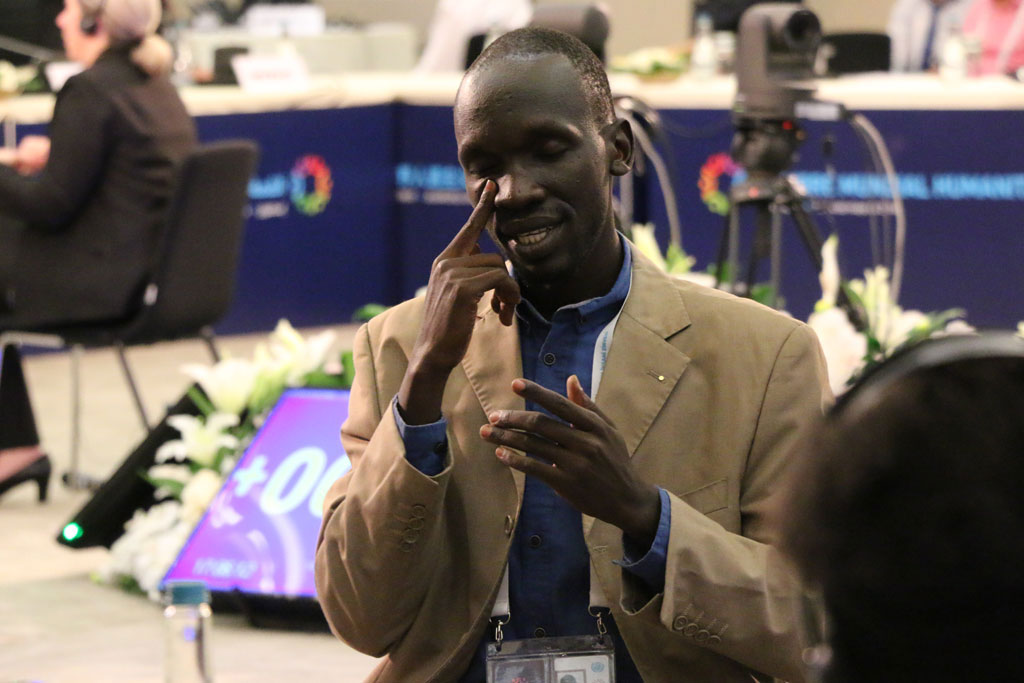
On Monday 23 May, a special session on the issue of “Global Health” was organised as part of the World Humanitarian Summit in Istanbul. The event saw the participation of several speakers, including government ministers, directors of international organisations and members of the private sector. Here is a selection of ten statements that were made during the session:
- “There is absolutely no doubt that the recurrence we have seen from diseases like Ebola will repeat itself and there is absolutely no doubt that we are not prepared to deal with it. As humanitarians, our partners have committed to work together to improve our action in that area.” (Dr. Bruce Aylward, Assistant Director-General, World Health Organisation)
- “In the case of Ebola, we learned the painful lesson that we are not able to quickly mobilize medical teams. We have acted on that lesson and earlier this year, we have launched the European Medical Corps, which has now been deployed for the first time to help with the yellow fever outbreak in Angola.” (Christos Stylianides, Commissioner for Humanitarian Aid and Crisis Management, European Union)
- “All this were possible given the fact that successive governments of Sri Lanka have invested in its health system while providing free health care and education to its people. It is our firm belief that developing and strengthening national health systems in times of emergency is crucial.” (Nimal Siripala de Silva, Transport Minister, Government of Sri Lanka)
- “We believe that resilient health systems are the best force against all crises with health consequences. Capacity-building needs to be a multi-sectoral and multi-stakeholder process.” (Hanna Mantyla, Minister of Social Affairs and Health, Government of Finland)
- “As we have seen time and again, no single sector can effectively address global crises alone. Our partnership [the Global Supply Network for Pandemic Preparedness and Response, which brings together the private sector, academia and international NGOs] is a powerful demonstration of what we can achieve when we share collective responsibility to save lives.” (Stanley Bergman, Chief Executive Officer, Henry Schein)
- “In post-crisis recovery phase, the concept of ‘build back better’ should be incorporated to build up a more resilient and sustainable health system in order to prevent recurrent health crises.” (Keizo Takewaka, Ministry of Foreign Affairs, Government of Japan)
- “Against these challenges, the Ministry of Public Health has committed to reinforce primary care health system by integrating community health workers as bonding agents between the community and reference hospitals.” (Daphné Benoit Delsoin, Minister of Public Health, Government of Haiti)
- “Look at what we did in Sierra Leone: training health workers. Has anybody gone back to trace these health workers? How can we make sure that we integrate them into the health system so that they can reach everybody? That is what we need to do.” (Babtunde Osotimhen, Executive Director, United Nations Population Fund)
- “But outbreaks are still going to happen and to ensure that the world can respond swiftly the next time this occurs, the Bank Group has recently announced the creation of the Pandemic Emergency Financing Facility. This is an innovative fast-disbursing finance mechanism which will for the first time ever, provide formal insurance to the poorest countries against pandemic risks and to help accelerate the global and national response to future outbreaks that have pandemic potential.” (Keith Hansen, Vice-President for Human Development, World Bank)
- “Poor understanding of, and lack of support for, strengthening existing local capacities meant failures on the ground to identify and contain the [Ebola] epidemic in a timely manner. This capacity goes beyond the formal business concepts of capacity in a way it has come to be understood in the humanitarian sector. It extends to more subtle concepts such as an understanding of local social values and practices, community sensitivities and pre-existing relationships between communities and institutions.” (Caroline Kisia, Executive-Director, Action Africa Help International)
Crédit photo: UN News Centre
